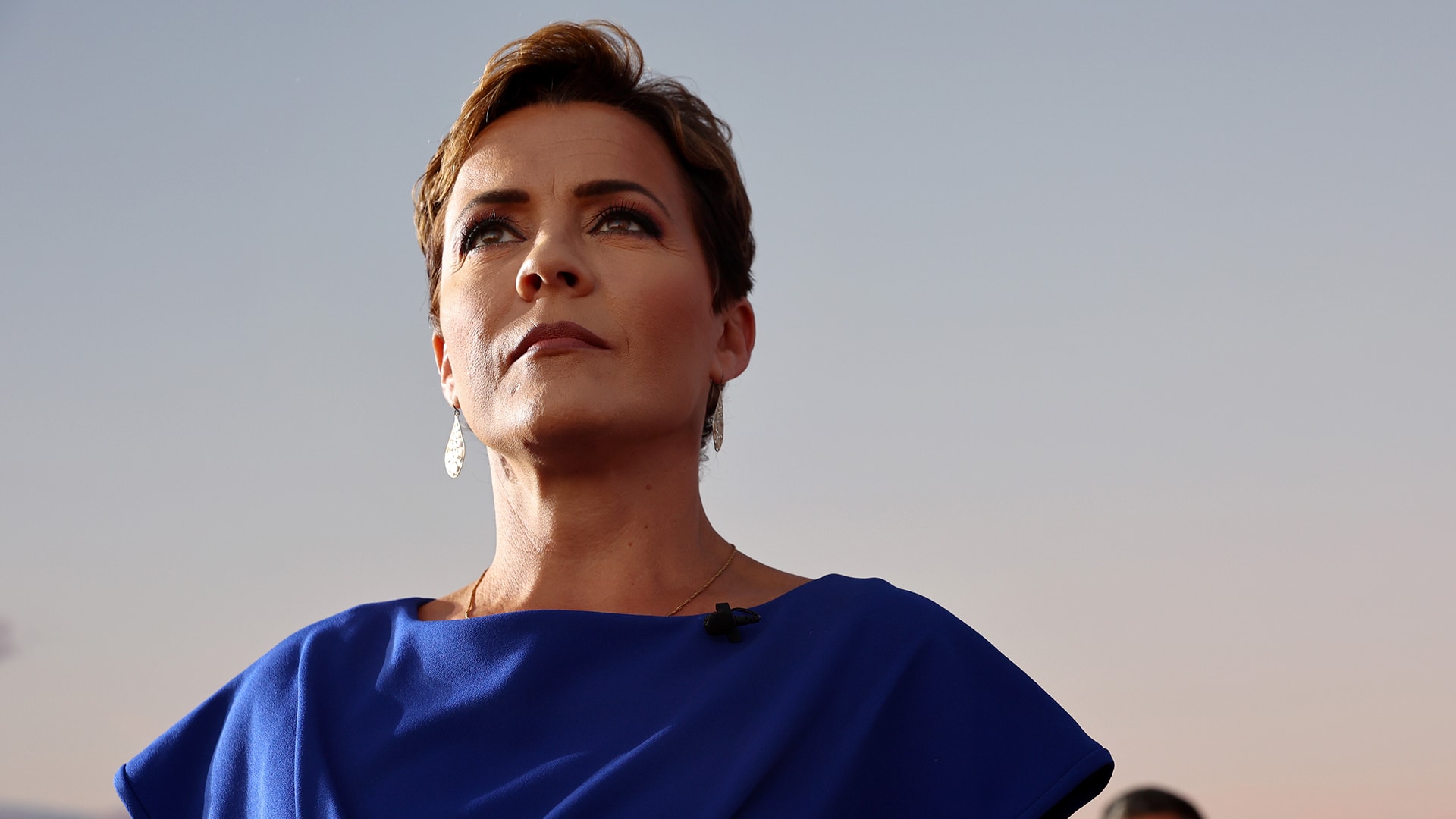OPINION: This article may contain commentary which reflects the author's opinion.
The contest for the United States Senate in Arizona is shaping up to me a barn burner and when the smoke clears the person standing on top may be Kari Lake.
The Republican who came up short in her bid to be governor of the state, though a court case is still active, is on top in a new poll for the 2024 election, Newsweek reported.
The poll showed that Lake would defeat sitting Independent Sen. Kyrsten Sinema and her possible Democrat challenger Ruben Gallego.
Lake, who rumors say is considering running for the seat but has not confirmed this, polled at 36 percent, according to Blueprint, well ahead of the two rivals. Gallego trailed closely with 32 percent, while Sinema ran a distant third with 14 percent.
The poll said that in a three way contest one of six voters surveyed was undecided, which could assist Sen. Sinema in keeping her position.
Since leaving the Democrat Party last month Sen. Sinema has gained support from Republican and Democrat voters and, the poll said that her best chance to stay in the Senate “may be for the Republican party to nominate a candidate so flawed that moderate and conservative voters would abandon that person for the Independent Sinema.”
But Lake has not decided yet on campaigning for Senate as he fight for the governorship of the state has continued.
Last week a state appeals court in Arizona has agreed to expedite a hearing into a lawsuit brought by the former GOP gubernatorial candidate alleging enough election improprieties in November to have cost her a victory against then-Democratic Secretary of State Katie Hobbs, who has since been inaugurated as governor.
The decision by the Arizona Court of Appeals comes after the state Supreme Court rejected her case earlier this month and remanded it to be heard first in lower courts.
The Epoch Times reports:
In a brief order, issued on Jan. 9 and made public the next day, the court ordered a reset of “the matter for conference on February 1, 2023,” and agreed with Lake’s arguments that her challenge should be handled as a “special action petition.” The court date was reportedly scheduled for March.
Lawyers for Democrat Arizona Gov. Katie Hobbs, the state’s former secretary of state, [have] until Jan. 17 to respond and argue why Lake’s challenge should be rejected, according to the order. Lake had petitioned both the state’s Appeals Court and Supreme Court after a Maricopa County judge rejected her case after a two-day trial in December.
In an interview with the Salem News Channel on Friday, Lake also claimed that her legal team has “three whistleblowers in the signature verification department in Maricopa County who said that they were rejecting tens of thousands of signatures to the tune of up to 130,000 ballots that were being rejected for bad signatures, and somebody above them was sending them on through to be counted anyway.”
.@KariLake: "We have 3 whistleblowers in the signature verification department in Maricopa… Who said that they were rejecting tens of thousands of signatures to the tune of up to 130,000 ballots that were being rejected… Somebody above them was sending them on through anyway" pic.twitter.com/cnccVZRtqp
— Kari Lake War Room (@KariLakeWarRoom) January 14, 2023
“Lake’s lawyers previously argued that those Maricopa officials allegedly ‘admitted, after first denying, that illegally misconfigured ballots were injected into the election’ and triggered the ‘tabulators to reject tens of thousands of ballots,’” The Epoch Times reported, citing court documents. “Lawyers stated Republican voters on Election Day were disproportionally impacted.”
Also Friday, Lake praised an Arkansas county court for its decision to reject electronic voting machines in all future elections, choosing instead to return to paper ballots in a move designed to boost election integrity and confidence in outcomes.
In a tweet lauding the decision by a Cleburne County court, Lake also included a link to a KARK report detailing the ruling:
Officials with the Arkansas Voter Integrity Initiative Inc. (AVII) said the vote was in response to AVII CEO Colonel Conrad Reynolds’ push for election computers to be removed from Arkansas elections. The decision will now require votes to be hand counted.
“The machines do not read the names on the ballots, instead, they scan barcodes, which humans cannot read,” Reynolds said. “They also utilize proprietary software that we are not allowed to examine. This all means voters cannot verify that their vote is being counted properly as mandated by state law.”
